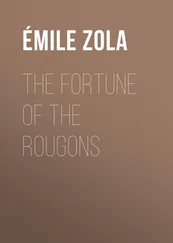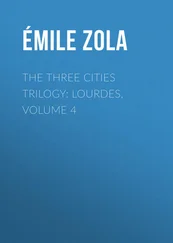Émile Zola - The Downfall
Здесь есть возможность читать онлайн «Émile Zola - The Downfall» — ознакомительный отрывок электронной книги совершенно бесплатно, а после прочтения отрывка купить полную версию. В некоторых случаях можно слушать аудио, скачать через торрент в формате fb2 и присутствует краткое содержание. Жанр: literature_19, foreign_antique, foreign_prose, на английском языке. Описание произведения, (предисловие) а так же отзывы посетителей доступны на портале библиотеки ЛибКат.
- Название:The Downfall
- Автор:
- Жанр:
- Год:неизвестен
- ISBN:нет данных
- Рейтинг книги:5 / 5. Голосов: 1
-
Избранное:Добавить в избранное
- Отзывы:
-
Ваша оценка:
- 100
- 1
- 2
- 3
- 4
- 5
The Downfall: краткое содержание, описание и аннотация
Предлагаем к чтению аннотацию, описание, краткое содержание или предисловие (зависит от того, что написал сам автор книги «The Downfall»). Если вы не нашли необходимую информацию о книге — напишите в комментариях, мы постараемся отыскать её.
The Downfall — читать онлайн ознакомительный отрывок
Ниже представлен текст книги, разбитый по страницам. Система сохранения места последней прочитанной страницы, позволяет с удобством читать онлайн бесплатно книгу «The Downfall», без необходимости каждый раз заново искать на чём Вы остановились. Поставьте закладку, и сможете в любой момент перейти на страницу, на которой закончили чтение.
Интервал:
Закладка:
“You had better hold your tongue, you fellows! It might be the worse for you if anyone should hear you.”
He himself, in his untutored, common-sense way of viewing things, was exasperated by the stupid incompetency of their commanders, but then discipline must be maintained, and as Chouteau still kept up a low muttering he cut him short:
“Be silent, I say! Here is the lieutenant: address yourself to him if you have anything to say.”
Maurice had listened in silence to the conversation from his place a little to one side. Ah, truly, the end was near! Scarcely had they made a beginning, and all was over. That lack of discipline, that seditious spirit among the men at the very first reverse, had already made the army a demoralized, disintegrated rabble that would melt away at the first indication of catastrophe. There they were, under the walls of Belfort, without having sighted a Prussian, and they were whipped.
The succeeding days were a period of monotony, full of uncertainty and anxious forebodings. To keep his troops occupied General Douay set them to work on the defenses of the place, which were in a state of incompleteness; there was great throwing up of earth and cutting through rock. And not the first item of news! Where was MacMahon’s army? What was going on at Metz? The wildest rumors were current, and the Parisian journals, by their system of printing news only to contradict it the next day, kept the country in an agony of suspense. Twice, it was said, the general had written and asked for instructions, and had not even received an answer. On the 12th of August, however, the 7th corps was augmented by the 3d division, which landed from Italy, but there were still only two divisions for duty, for the 1st had participated in the defeat at Froeschwiller, had been swept away in the general rout, and as yet no one had learned where it had been stranded by the current. After a week of this abandonment, of this entire separation from the rest of France, a telegram came bringing them the order to march. The news was well received, for anything was preferable to the prison life they were leading in Belfort. And while they were getting themselves in readiness conjecture and surmise were the order of the day, for no one as yet knew what their destination was to be, some saying that they were to be sent to the defense of Strasbourg, while others spoke with confidence of a bold dash into the Black Forest that was to sever the Prussian line of communication.
Early the next morning the 106th was bundled into cattle-cars and started off among the first. The car that contained Jean’s squad was particularly crowded, so much so that Loubet declared there was not even room in it to sneeze. It was a load of humanity, sent off to the war just as a load of sacks would have been dispatched to the mill, crowded in so as to get the greatest number into the smallest space, and as rations had been given out in the usual hurried, slovenly manner and the men had received in brandy what they should have received in food, the consequence was that they were all roaring drunk, with a drunkenness that vented itself in obscene songs, varied by shrieks and yells. The heavy train rolled slowly onward; pipes were alight and men could no longer see one another through the dense clouds of smoke; the heat and odor that emanated from that mass of perspiring human flesh were unendurable, while from the jolting, dingy van came volleys of shouts and laughter that drowned the monotonous rattle of the wheels and were lost amid the silence of the deserted fields. And it was not until they reached Langres that the troops learned that they were being carried back to Paris.
“Ah, nom de Dieu! ” exclaimed Chouteau, who already, by virtue of his oratorical ability, was the acknowledged sovereign of his corner, “they will station us at Charentonneau, sure, to keep old Bismarck out of the Tuileries.”
The others laughed loud and long, considering the joke a very good one, though no one could say why. The most trivial incidents of the journey, however, served to elicit a storm of yells, cat-calls, and laughter: a group of peasants standing beside the roadway, or the anxious faces of the people who hung about the way-stations in the hope of picking up some bits of news from the passing trains, epitomizing on a small scale the breathless, shuddering alarm that pervaded all France in the presence of invasion. And so it happened that as the train thundered by, a fleeting vision of pandemonium, all that the good burghers obtained in the way of intelligence was the salutations of that cargo of food for powder as it hurried onward to its destination, fast as steam could carry it. At a station where they stopped, however, three well-dressed ladies, wealthy bourgeoises of the town, who distributed cups of bouillon among the men, were received with great respect. Some of the soldiers shed tears, and kissed their hands as they thanked them.
But as soon as they were under way again the filthy songs and the wild shouts began afresh, and so it went on until, a little while after leaving Chaumont, they met another train that was conveying some batteries of artillery to Metz. The locomotives slowed down and the soldiers in the two trains fraternized with a frightful uproar. The artillerymen were also apparently very drunk; they stood up in their seats, and thrusting hands and arms out of the car-windows, gave this cry with a vehemence that silenced every other sound:
“To the slaughter! to the slaughter! to the slaughter!”
It was as if a cold wind, a blast from the charnel-house, had swept through the car. Amid the sudden silence that descended on them Loubet’s irreverent voice was heard, shouting:
“Not very cheerful companions, those fellows!”
“But they are right,” rejoined Chouteau, as if addressing some pot-house assemblage; “it is a beastly thing to send a lot of brave boys to have their brains blown out for a dirty little quarrel about which they don’t know the first word.”
And much more in the same strain. He was the type of the Belleville agitator, a lazy, dissipated mechanic, perverting his fellow workmen, constantly spouting the ill-digested odds and ends of political harangues that he had heard, belching forth in the same breath the loftiest sentiments and the most asinine revolutionary clap-trap. He knew it all, and tried to inoculate his comrades with his ideas, especially Lapoulle, of whom he had promised to make a lad of spirit.
“Don’t you see, old man, it’s all perfectly simple. If Badinguet and Bismarck have a quarrel, let ‘em go to work with their fists and fight it out and not involve in their row some hundreds of thousands of men who don’t even know one another by sight and have not the slightest desire to fight.”
The whole car laughed and applauded, and Lapoulle, who did not know who Badinguet[*] was, and could not have told whether it was a king or an emperor in whose cause he was fighting, repeated like the gigantic baby that he was:
[*] Napoleon III.
“Of course, let ‘em fight it out, and take a drink together afterward.”
But Chouteau had turned to Pache, whom he now proceeded to take in hand.
“You are in the same boat, you, who pretend to believe in the good God. He has forbidden men to fight, your good God has. Why, then, are you here, you great simpleton?”
“ Dame !” Pache doubtfully replied, “it is not for any pleasure of mine that I am here – but the gendarmes – ”
“Oh, indeed, the gendarmes! let the gendarmes go milk the ducks! – say, do you know what we would do, all of us, if we had the least bit of spirit? I’ll tell you; just the minute that they land us from the cars we’d skip; yes, we’d go straight home, and leave that pig of a Badinguet and his gang of two-for-a-penny generals to settle accounts with their beastly Prussians as best they may!”
Читать дальшеИнтервал:
Закладка:
Похожие книги на «The Downfall»
Представляем Вашему вниманию похожие книги на «The Downfall» списком для выбора. Мы отобрали схожую по названию и смыслу литературу в надежде предоставить читателям больше вариантов отыскать новые, интересные, ещё непрочитанные произведения.
Обсуждение, отзывы о книге «The Downfall» и просто собственные мнения читателей. Оставьте ваши комментарии, напишите, что Вы думаете о произведении, его смысле или главных героях. Укажите что конкретно понравилось, а что нет, и почему Вы так считаете.












